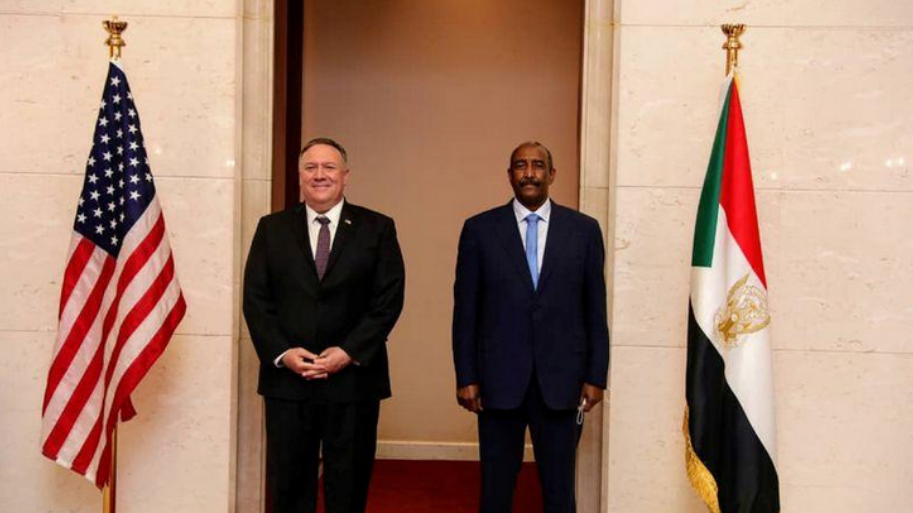
U.S. Secretary of State Mike Pompeo (L) meets with Sudanese Prime Minister Abdalla Hamdok. /Reuters
U.S. Secretary of State Mike Pompeo (L) meets with Sudanese Prime Minister Abdalla Hamdok. /Reuters
Sudan's Prime Minister Abdalla Hamdok said Saturday that he does not accept tying Sudan's removal from a U.S. list of state sponsors of terrorism (SST) with a deal to normalize relations with Israel.
Sudan has been dealing with a deteriorating economic crisis for years and signs of recovery are nowhere in sight. Having it removed from the SST list could bring substantial economic benefits to the destitute country and help it walk out of a perennial quagmire.
Experts have told CGTN that the Trump administration may have set a normalization deal with Israel as a precondition for that to happen, as the U.S. president is pushing Arab countries to rebuild ties with Israel.
Sudan-Israel ties normalization? Motivations and obstacles
Earlier this week, Sudanese and U.S. officials held a meeting in Abu Dhabi and discussed both Sudan's removal from SST and a possible normalization deal with Israel. Despite being optimistic that an agreement could be reached imminently, Sudanese representatives walked out of the meeting with no deal on the table.
Obstacles to a Sudan-Israel deal include domestic resistance in Sudan and President Trump's inability to offer financial assistance that Khartoum is asking for in return.
Hamdok previously told U.S. Secretary of State Mike Pompeo that he does not have the mandate to normalize relations with Israel.
Abdel Fattah al-Burhan, head of Sudan's Sovereign Council, took an unprecedented step to meet with Israeli Prime Minister Benjamin Netanyahu in February. Though protests were triggered, Israeli aircraft began overflying Sudan afterward. Al-Burhan was also among the officials who discussed the issue with U.S. officials in Abu Dhabi.
Over the last few months, the Sudanese government has made contradictory statements regarding its intention to normalize relations with Israel. Some believe it was because the military side of the government, which is led by al-Burhan, could not handle domestic opposition and had to make its efforts opaque.